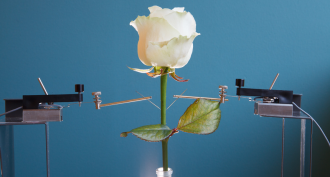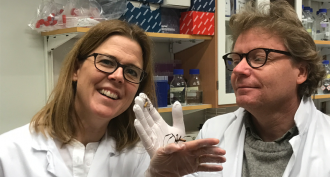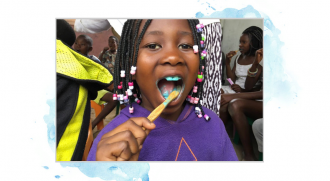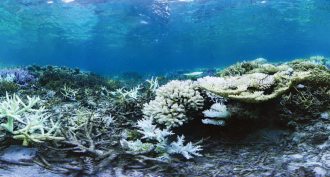MS-ETS1-2
Evaluate competing design solutions using a systematic process to determine how well they meet the criteria and constraints of the problem.
-
 Science & Society
Science & SocietyShould we call out to space aliens?
Scientists have been listening to space for decades, hoping to pick up alien signals. Now some have proposed we try broadcasting a welcome call.
By Ilima Loomis -
 Tech
TechWired and weird: Meet the cyborg plants
By mixing electronics with greenery, engineers have made plants that conduct electricity, detect bombs and send email.
-
 Tech
TechHow to spin synthetic spider silk
A new method for spinning artificial spider silk combines parts of proteins from two species and mimics what happens in a spider’s silk-forming gland.
-
 Genetics
GeneticsWorld’s tallest corn towers nearly 14 meters
Short nights and a genetic tweak helped novel corn reach record heights.
-
 Computing
ComputingComputer hackers take to the cloud
People use cloud computing for storing files online. A new study shows the dark side of the cloud: These services can harbor malware.
-
 Physics
PhysicsWind power gets downsized — but in a good way
Two young scientists have developed ways to tap into wind power on a small scale.
By Sid Perkins -
 Tech
TechFingers leave tell-tale clues about you on your phone
Analyzing chemicals on a cell phone tells researchers what the caller had been up to. That includes recent meals and where they'd been.
-
 Health & Medicine
Health & MedicineSimpler way to screen for hidden hearing loss?
Many teens today walk around with undiagnosed hearing damage. But some Boston-based researchers have come up with a low-tech approach to screening these individuals so they can get help.
By Lela Nargi -
 Health & Medicine
Health & MedicineCould toothpaste give heart disease the brush-off?
Brushing with a toothpaste that dyes plaque green encourages people to remove more of it. This also lowered inflammation, which may cut someone’s risk of heart disease.
-
 Environment
EnvironmentVaping may put your smile at risk
As e-cigarette use among teens rises, scientists find that vaping may cause cellular damage to the mouth, gums and teeth. Even the cells’ DNA was affected.
-
 Oceans
OceansCreative ways to help coral reefs recover
Coral reefs are under siege from threats ranging from climate change to explosives. But scientists are developing ways to rebuild reefs before they disappear.
-
 Tech
TechOne day, computers may decode your dreams
Scientists are learning how to translate brain activity into words and thoughts. This may one day allow people to control devices with their minds.